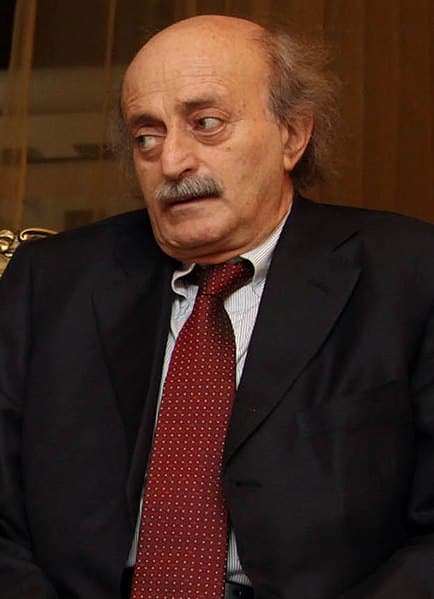Walid Jumblatt 2010
Lebanese Druze leader Walid Jumblatt has announced his resignation as the head of the Progressive Socialist Party (PSP) after serving almost for 46 years. Jumblatt has called for a party conference on June 25 to select his successor.
Jumblatt has been the leader of the left-wing PSP since 1977, after the assassination of his father, Kamal Jumblatt, during lebanon’s 15-year civil war, allegedly carried out by Syrian agents. Besides head of the PSP, he also inherented the role of leading the Druze community in Lebanon, which positioned him as a prominent militia leader during the conflict.
Even after the 1989 Taif Accord, which ended the civil war, Jumblatt retained his influence and played a crucial role, alongside Rafic Hairiri, in resisting Syrian control over Lebanon until 2005. His ability to shift political affiliations has contributed to his longevity in the tumultuous Lebanese political landscape. Due to Lebanon’s confessional political system, the Druze community is guaranteed a certain number of seats in parliament, granting Jumblatt significant leverage as a “kingmaker” in key political contests.
Jumblatt stepped down as a Member of Parliament in the 2018 elections and passed the baton of his parliamentary career to his son and political successor, Tayour Jumblatt. In recent years, Taymour has assumed a more prominent role within the PSP and Druze affairs. Currently, the PSP holds eight seats in the 128-seat parliament, representing approximately four percent of the total vote. The PSP, historically advocating for secular governance, experienced a shift in its foundation when Jumblatt assumed leadership. During the civil war, Druze civilians turned to him for arms to defend themselves, leading to a departure from the party’s secular principles. The Druze, a minority religious sect present in Lebanon, Syria, the Palestinian territories, and Israel, have diverse perspectives on the war in neighbouring Syria, with some supporting the government of president Bashar al-Assad and other aligned with the opposition.
Jumblatt played a prominent role in the 2005 Cedar Revolution, triggered by the assassination of former Prime minister Rafiq al-Hariri. He tirelessly advocated for Lebanon’s independence from Syrian influence and became a vocal critic of the Syrian government. In 2019, during nationwide protests demanding an end to the long-standing political and economic power structure, Jumblatt supported civilian efforts but faced criticism for perceived ineffectiveness. Lebanon’s economic collapse that year resulted in a significant devaluation of the Lebanese pound and the country’s first sovereign default in march 2020.
Lebanon has faced challenges in selecting a new president since October 2022 when Michel Aoun stepped down. The country has been governed by a caretaker cabinet, led by najib Mikati, with limited powers since May of the previous year. Supporters of the PSP hope that a new, young leader will breathe fresh life into the party and advocate for its interests. Taymour, aged 41, is widely expected to succeed his father as the leader of the PSP
Author: Manouk Bronzwaer



